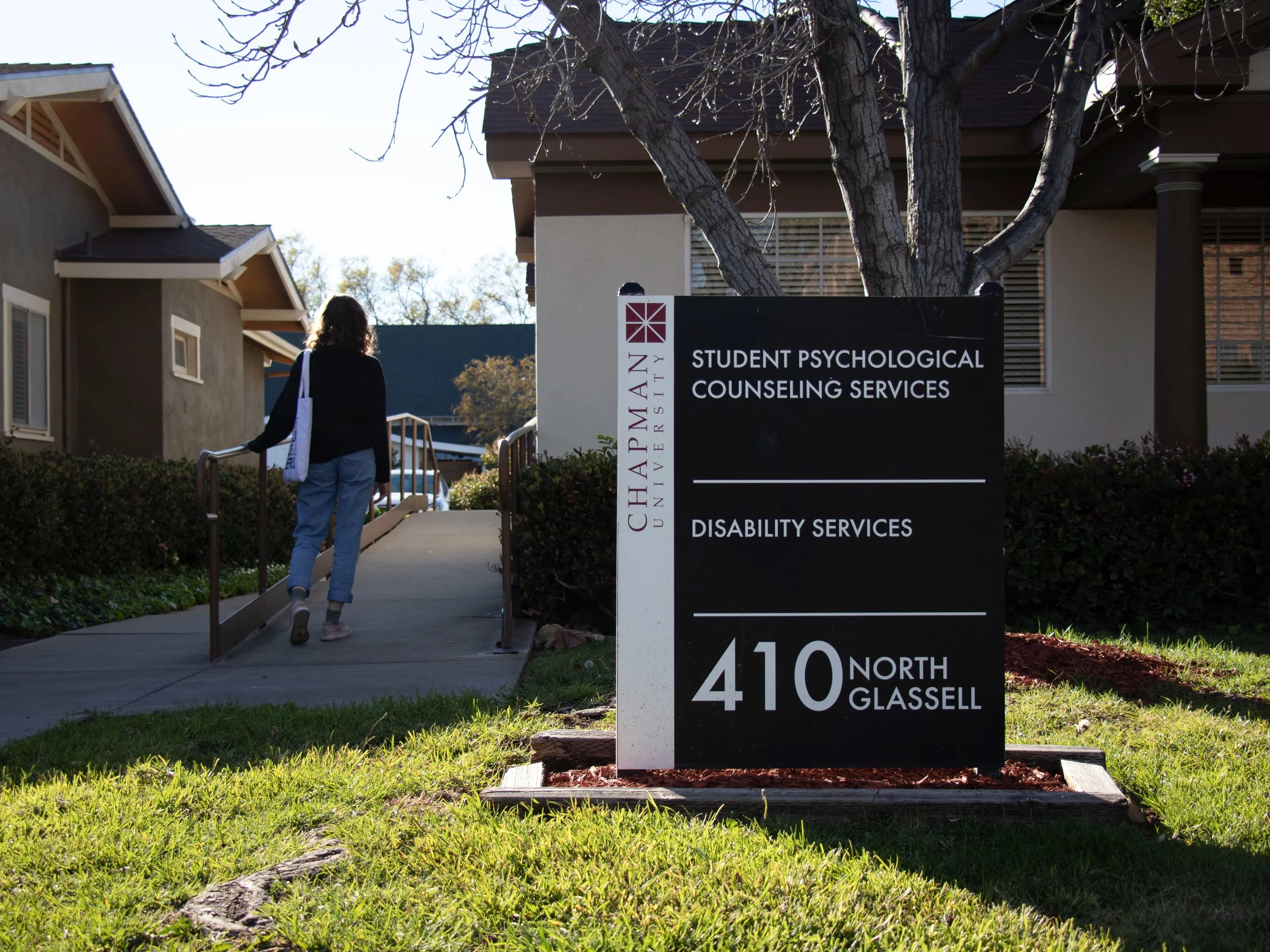Opinion | Dear Andrea Killian, let’s talk about mental health
For my English class I had to write an open letter regarding a disability I personally think is overlooked. Men’s mental health has been a concern to me ever since I’ve begun college and Chapman must do a better job with support. Photo from The Panther Archives
Dear Andrea Killian,
I am writing this letter concerning the lack of mental health support for male students at Chapman University.
Mental health has become an increasingly important topic within society, and it is essential to ensure that everyone has the proper support and resources throughout difficult times in their life. Mental health is a critical facet of one’s life and should be treated as such.
Julian Vlad, junior biochemistry and molecular biology double major
It is crucial that these resources are not only easily accessible, but that they are encouraged to be used. Historically, there has been a negative stigma, specifically with men, asking for help and using necessary resources. To cultivate a healthy lifestyle for all Chapman students, we must raise awareness regarding men’s mental health and have available resources that are tailored to these issues.
Currently, suicide is the 8th leading cause of death in men, and in 2019, 79% of all suicides were men. Men are four times more likely to commit suicide than women. They are also far less likely to reach out for support due to social norms, reluctance to talk and underdiagnosed symptoms because men do not develop standard symptoms.
This, in turn, can lead to substance abuse and other issues.
Due to these problems, serious mental health issues cost the U.S. about $200 billion dollars in lost earnings every year. These issues not only affect the U.S. economy, but more importantly, the lives of many of its inhabitants.
Recently, due to the global pandemic, there has been less accessibility to mental health support. The two main causes of mental health issues throughout the pandemic were economic stressors and the lack of social connections.
In light of this, it is essential that this issue become crucial for the university. Many students do poorly in their classes, often skip them and become unmotivated due to poor mental health. From there, students drop out of school, which has huge repercussions in their professional and personal life.
The current resources available to students are on-campus counseling and group sessions, which are extremely difficult to contact. Many of my peers have attempted to make appointments for these counseling sessions, but after months of waiting, no response was given.
Active Minds, a student-run organization, is another resource that raises awareness on mental health issues by planning events for student involvement.
I have been through many difficult periods of my life during my time at Chapman. I have requested counseling when it was necessary but support came months after. During fall 2022, I had to withdraw from an essential prerequisite for my degree because of my spiraling mental health issues.
Chapman offers help and support for many other disabilities, but fails to aid students struggling with mental health.
It has been shown in many different studies that men are far less likely to ask for help regarding these issues. It is crucial to have resources openly advertised to men on campus. These resources should offer both confidential and non-confidential options for students to choose which ones they feel most comfortable with.
College is the most important time in the lives of young adults, and the habits formed throughout this time stick with them through adulthood. If students can learn that they are not alone and are supported, they can learn healthy habits that last them the rest of their lives. It is essential to support students with mental health issues so that they can flourish and excel within the community.
The issues I bring up are to encourage Chapman to create a response to the lack of mental health support it offers. I want to encourage Chapman to implement additional resources on campus targeting the male community. These resources should allow for increased availability for mental health resources in a welcoming and non-judgmental way.
With these changes, Chapman could lead the way for many universities to develop a healthy and safe environment for their students. We could break down barriers and create a more welcoming campus where students’ mental health is supported. In turn, this would lead to a shift nationally to allow for more awareness and an increase in quality of life.
My proposed solution is to add a course required for all first-year students where they learn about different types of mental health issues, while learning about all of the resources Chapman has to offer, along with other local resources in Orange County. There could be speakers who come in directly and talk about their mental health issues, and what specific support they found useful.
Not only would this educate Chapman students, but it would also allow students to begin to destroy the negative stigma of asking for help when it comes to mental health.
Sincerely,
A concerned Panther


